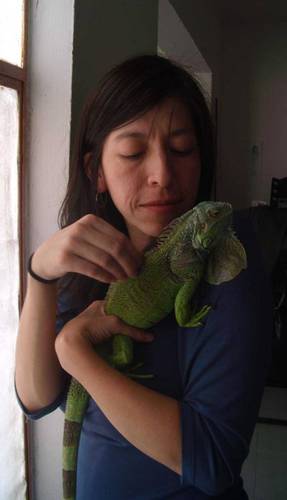Novel raises the limits of hope under the theme of assisted motherhood
Lourdes Meraz addresses in her novel The orphanhood of seeds the issue of surrogacy and assisted reproduction. In an interview, she comments that rather than proposing a political position regarding the ability to be mothers, she is interested in proposing how far we are capable of going in the name of hope and our desires
.
In the book published in Barker Books the protagonist is Mariana, an engineer who, when beginning the process of getting pregnant, encounters infertility. The impossibility of fulfilling her reproduction gives rise to an exploration of what happens to her, her husband, her Roman, the young messenger Habakkuk, and Nora, who offers her womb to house her fertilized egg. she.
Meraz (Mexico City, 1980) proposes to offer a look at motherhood outside of convention, romanticization and political correctness. Written in the first person by different characters and an omniscient narrator, it constructs an intimate observation of how the search to fulfill the desire to be a mother can continue despite the pain, often with the annihilation of emotion and love as a couple, with inflexible schedules designed to fulfill a duty.
The writer will talk about her second novel today at 6 p.m., at the Book and Rose Festival, organized by the National Autonomous University of Mexico (UNAM), where she will be accompanied by the researcher Berenice Romano and the psychoanalyst Marling Cisneros.
We are talking about very expensive and exhausting treatments on a physical and emotional level. Another thing that caught my attention is how everything changes places. A menstrual period that usually arrives in 28 days suddenly becomes the harbinger of a tragedy because it leaves you with evidence that once again it was not possible. The egg, for example, also becomes an extremely precious commodity, like a golden egg that must be sought out all the time. So, it’s how it disrupts the lives of all the people who enter this territory; It amazed me a lot.
▲ The book published by the Barker Books label is the author’s second, in the image.Photo courtesy of Lourdes Meraz
The author debuted as a novelist in 2013 with The abysses of the skin, around the body, memory and the illness that a woman goes through. The idea for her second book arose seven years ago from a very close friend’s experience in an assisted reproduction clinic, which she found very intrusive and painful.
“At that moment I said: ‘there is a lot to observe and weave here’; That’s how I entered this subject, which, in some way, I feel is like the side of motherhood, a desire that develops over and over again, but that gives birth to great frustration, because it doesn’t arrive and there is a great silence of the body. “, Explain.
As part of the writing process, it took him a lot of time to research because it was a very complex topic, for which he approached the fields of science and technology in order to learn more about these reproduction clinics, talk with professionals from health, including a gynecologist and a biotechnology engineer.
Also, from the human side, I observed the way in which everyone faces this silence of the body in very different ways, because women do not cope with it in the same way as men: they live it in the body, with all their hormones and for men it is a little different.
.
The orphanhood of seeds It has been made known to students at the Universidad Autónoma Metropolitana-Iztapalapa and in the Utopics bookstore, specialized in feminist and social movement texts.
The next presentation, as part of the activities organized this weekend by UNAM, will be in the conference room of the University Museum of Contemporary Art (Insurgentes Sur 3000).
